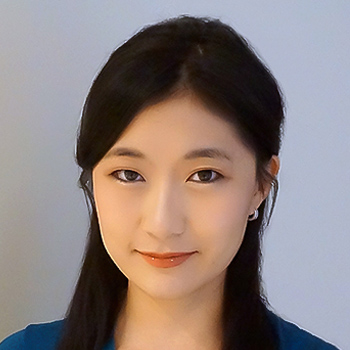- Our Doctors
- Dr Eunice Dai

Dr Eunice Dai
MBBS (Hons), FRACP, BPharm, Medical Oncologist
For patients/carers
For doctors
MBBS (Hons), FRACP, BPharm, Medical Oncologist
Locations
Clinical interests
- Breast cancer
- Bile duct cancer
- Gallbladder cancer
- Oesophageal cancer
- Kidney cancer (Renal cancer)
- Colorectal (bowel) cancer
- Gastrointestinal cancer
- Pancreatic cancer
- Stomach cancer
- Genitourinary cancer
- Bladder cancer
- Prostate cancer
- Skin cancer
Languages
Fluent
- English
Biography
Clinical interest in Oncology
Dr Eunice Dai is an Australian medical oncologist with primary clinical interests in gastrointestinal and breast cancers. She is a consultant medical oncologist practicing at Campbelltown Hospital.
Dr Dai undertook physician training at St Vincent’s Hospital in Sydney, and further advanced training in medical oncology at Liverpool, Campbelltown, and Bankstown Hospitals. She went on complete a Phase 1 Clinical Trials research fellowship at Liverpool Hospital.
Dr Dai is committed to delivering empathetic, high quality, tailored patient care. She harbours a profound enthusiasm for translational research and clinical trials, recognising their pivotal role in offering patients innovative and individualised treatment pathways. Concurrent with her clinical practice, she is pursuing a PhD focused on predictive biomarkers in colorectal cancer patients receiving chemotherapy. Dr Dai's research contributions extend globally and domestically, with notable co-authorship of Australian cardio-oncology guidelines. She engages in network multidisciplinary team discussions and places a strong emphasis on teaching, assessing, and guiding medical students and physician trainees in their professional development.
More information
Circulating tumour cells, circulating tumour DNA, and DNA damage response as predictive biomarkers in rectal cancer
- COSA
- MOGA
- RACP
Explore more
Disclaimer:
This website is provided for information purposes only. Nothing on this website is intended to be used as medical advice, or to diagnose, treat, cure or prevent any disease. It should not be used as a substitute for your own health professional's advice. Any medical procedure or treatment carries risks. Before proceeding with treatment, you should discuss the risks and benefits of the treatment with an appropriately qualified health practitioner. Individual treatment outcomes and experiences will vary.




